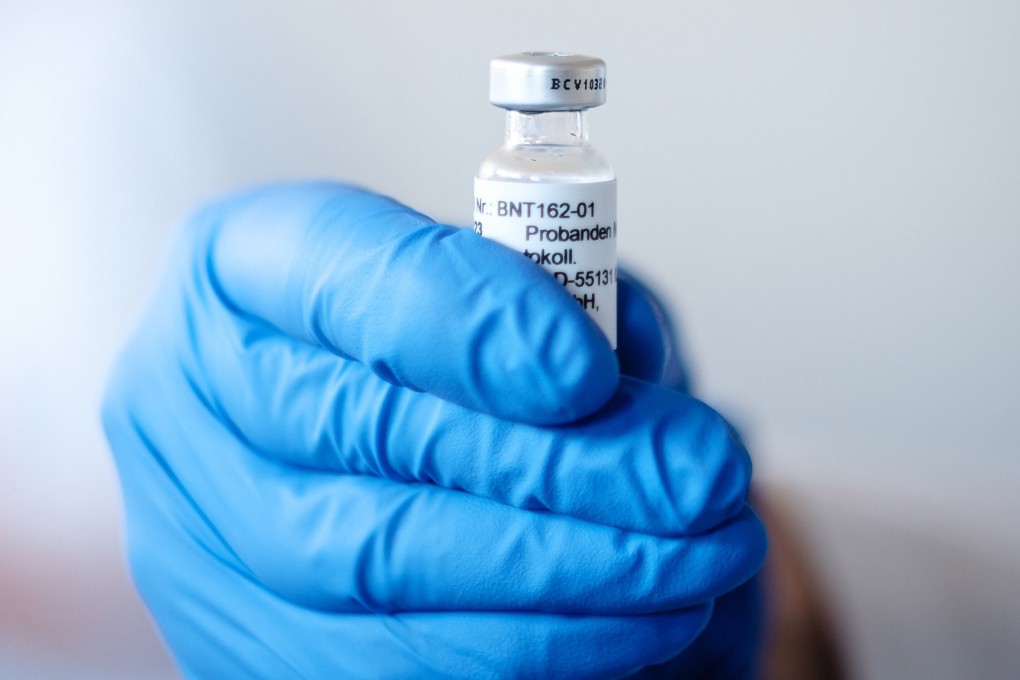Advertisement
Coronavirus: China approves clinical trial for German vaccine candidate
- BNT162b2 – developed by BioNTech with Pfizer and Chinese partner Fosun – gets the go-ahead from China’s National Medical Products Administration
- BioNTech chief executive says start of the trial is an ‘important step forward … time is of the essence’
Reading Time:3 minutes
Why you can trust SCMP

China’s regulator has given the go-ahead for a clinical trial of a German Covid-19 vaccine, moving the experimental candidate – among the most advanced in the global race – one step closer to potential approval and use in the country.
The candidate was found to be more than 90 per cent effective in preventing infections of the coronavirus, according to preliminary data.
The experimental vaccine, built by German firm BioNTech SE, is being developed in partnership with Shanghai Fosun Pharmaceutical (Group) Co., Ltd for the China market and American company Pfizer Inc. globally.
Advertisement
The Chinese firm, known as Fosun Pharma, received approval from China’s National Medical Products Administration to start an in-country trial of the candidate, according to a company statement on Friday.
The step comes after BioNTech and Pfizer offered the world a dose of optimism last week, announcing that the experimental vaccine, known as BNT162b2, appeared to be more than 90 per cent effective in preventing Covid-19 infection as compared with a placebo, based on an interim assessment of data from their global clinical trial.
Advertisement
Advertisement
Select Voice
Choose your listening speed
Get through articles 2x faster
1.25x
250 WPM
Slow
Average
Fast
1.25x